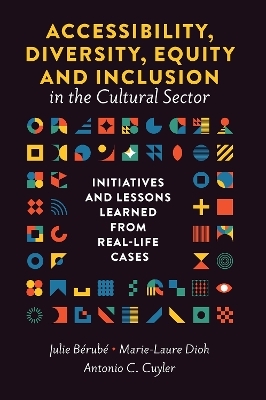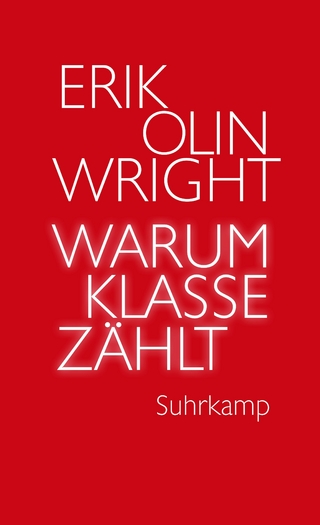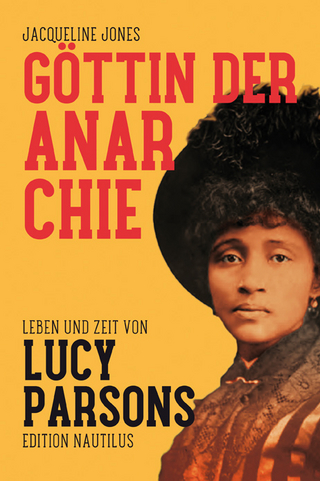
Accessibility, Diversity, Equity and Inclusion in the Cultural Sector
Emerald Publishing Limited (Verlag)
978-1-83753-035-9 (ISBN)
Though accessibility, diversity, equity and inclusion (ADEI) are currently at the heart of many debates and social concerns around the world, few academic studies have explored real world ADEI initiatives in the creative sector. Accessibility, Diversity, Equity and Inclusion in the Cultural Sector unpacks real-life initiatives and experiences to reveal how those working in these sectors integrate ADEI into their management practices.
Acknowledging the importance of geographic and disciplinary contexts in approaching ADEI issues, chapters offer a broad representation of art disciplines, including the performing arts, music, visual arts and events industries, taking as examples opera houses, orchestras, theaters, arts museums, festivals, federal cultural administrations and even the Super Bowl. Equipping researchers and practitioners to make quick connections between research and practical settings, the authors present case studies from across the globe, including Colombia, Canada, the US, South Africa, Chile, Haiti, Australia and Taiwan, to provide a holistic view of how ADEI issues are addressed across different regions.
Advocating for the immersion of ADEI practices into the heart of art organizations, Accessibility, Diversity, Equity and Inclusion in the Cultural Sector links theory, practice and context as a way to further enrich cultural communities and wield the deeply human power of art for real human impact.
Julie Bérubé is Full Professor in the Department of Administrative Sciences at the Université du Québec en Outaouais, Canada. Marie-Laure Dioh is Associate Professor in the Department of Administrative Sciences at the Université du Québec en Outaouais, Canada. Antonio C. Cuyler is Professor of Music in Entrepreneurship & Leadership in the School of Music, Theatre & Dance at the University of Michigan, USA.
Chapter 1. ADEI in the Cultural Sector: Theories, Concepts and Real Case Studies; Julie Bérubé and Marie-Laure Dioh
Section 1. Performing Arts
Chapter 2. Cultural Organizations on the Leading Edge of Accessibility Management: The Case of the Teatro Villa Mayor of Bogotá; Julien Doris, Julie Bérubé, and Álvaro Andrés Martínez Coronel
Chapter 3. Black Opera Leaders in the U. S. : What is their Role in Black Opera?; Antonio C. Cuyler
Chapter 4. Performing Arts in a Francophone Minority Context: A Case Study of L'Association la Girandole d’Edmonton; Srilata Ravi and Olivia Leclair
Section 2. Music
Chapter 5. A Transformation of an Orchestra Through Gender Equity and Diversity; Sophie Galaise
Chapter 6. Navigating Gendered Spaces: Activists’ Synergies in Montreal’s Electronic Music Scene; Nancy Aumais and Coline Sénac
Chapter 7. The Expanding Economic Borders of South African Musicians: A Policy Effect; Akhona Ndzuta
Chapter 8. To Understand Solidarity Through Hip-Hop Culture in Haiti; Sandy Larose
Section 3. Visual Arts
Chapter 9. Collections and Inclusion: A Portrait of Museum Initiatives in Quebec and Ontario; Mélanie Boucher
Chapter 10. Beyond Fakequity: Redefining “Excellence” to Create Space for Equity; Brea M. Heidelberg
Chapter 11. Towards an Inclusive Cultural Participation: The Case of Chilean Museums; Jesús Heredia-Carroza, Javier Reyes-Martínez, and Fátima Gigirey
Section 4. Events
Chapter 12. The Super Bowl: An Opportunity for Equity, Diversity, and Inclusion Initiatives for Arts Organizations; Tiffany Bourgeois
Chapter 13. Local and Popular Cultural Festivals as Venues for the Promotion of Equity, Diversity and Inclusion: the Case of the Petronio Álvarez Pacific Music Festival in Colombia; Luis F. Aguado, Alexei Arbona, and Jesús Heredia-Carroza
Chapter 14. Digital Transformation of Events and Live Performances; Stephen Boyle, Carmen Reaiche, and Mohammadreza Akbari
Section 5. Synthesis, Tools and Policy
Chapter 15. Teaching ADEI in Taiwan; Tobie S. Stein
Chapter 16. Managing Diversity in Federal Cultural Administrations: the Example of Heritage Canada and Library and Archives Canada; Julien Doris
Conclusion. What Can we Learn from the Case Studies about ADEI Issues? : Conclusion; Marie-Laure Dioh
| Erscheinungsdatum | 06.08.2024 |
|---|---|
| Verlagsort | Bingley |
| Sprache | englisch |
| Maße | 152 x 229 mm |
| Gewicht | 478 g |
| Themenwelt | Sozialwissenschaften ► Soziologie ► Makrosoziologie |
| Wirtschaft ► Betriebswirtschaft / Management ► Personalwesen | |
| Wirtschaft ► Betriebswirtschaft / Management ► Planung / Organisation | |
| Wirtschaft ► Betriebswirtschaft / Management ► Unternehmensführung / Management | |
| ISBN-10 | 1-83753-035-1 / 1837530351 |
| ISBN-13 | 978-1-83753-035-9 / 9781837530359 |
| Zustand | Neuware |
| Haben Sie eine Frage zum Produkt? |
aus dem Bereich


